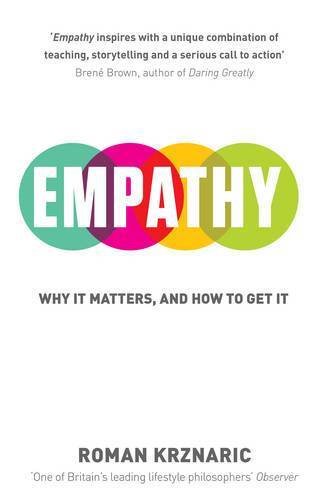Jeremy Williams's Blog, page 98
January 22, 2021
Building of the week: Beira Green Park
In March 2019, cyclone Idai blew in from the Indian ocean and hit the city of Beira, Mozambique. It was the second deadliest storm on record in the Southern Hemisphere, and the most expensive. Beira took the full force of the storm and was destroyed. That’s the word the city’s mayor Daviz Simango used, and it’s no exaggeration: 90% of the buildings were lost, including schools, the hospital and the port.
Perhaps because it happened on the same day as the Christchurch mosque shootings in New ...
January 20, 2021
Principles of simple technologies
I recently reviewed Philippe Bihouix’s book The Age of Low Tech, which makes the case for reducing our dependence on technological solutions to climate change. Instead, he argues that we should prioritise low tech solutions. A chapter of the book outlines the kind of thing he means, describing ‘the principles of simple technologies’.
This reminded me of E F Schumacher’s work on ‘appropriate technology’, which focuses on ‘intermediate’ level machines – a step up from manual labour, but still ...
January 19, 2021
How Solar Foods produce food from the air
“Any sufficiently advanced technology is indistinguishable from magic” as Arthur C Clarke once said. Solar Foods may qualify as once of those advanced technologies, and they know it. They describe their product as “the magic powder of science”, and it might be one of the most radical ideas I’ve covered on the blog.
Solar Foods make food out of the air.
I get a fair number of press releases about new manufacturing techniques. Most of them claim to be revolutionary and many of them are ind...
January 18, 2021
Book review: Meltdown, by Joel Levy
Last month I read the pro-nuclear treatise A Bright Future, which I thought was a well-written case for nuclear power in response to climate change – albeit with a few reservations. For the authors, one of the biggest frustrations with nuclear power is the perception that it is unsafe, when it is in fact one of the least dangerous ways to produce energy.
I thought that was worth exploring a little further. Where does the fear come from? How grounded in reality is it? What can I learn from th...
January 16, 2021
What we learned this week
A news update first: this week I signed a book deal with Icon Books. Is Climate Change Racist? is slated for publication in early summer. For those who have been waiting for it, thanks for your patience! It’s on its way.
AFP Factcheck, the largest journalistic verification operation on the internet, has put together a video training course on fact checking. Send it to all your friends on Facebook.
Those with an interest in participatory democracy might want to look up the results and ...
January 15, 2021
Building of the week: Preston Bus Station
Whether you appreciate its aesthetic or not, there’s no doubt that Brutalism gave us some of the 20th century’s most distinctive buildings. Named after the french word for raw or untreated, the architectural movement used exposed concrete to create stark and angular buildings. Done badly, it meant grey soulless monoliths, ugly and unloved and hardly helped by the connotations of the word ‘brutalism’.
At its best however, the movement was capable of extraordinary buildings. They drew the eye ...
January 14, 2021
The weight of the human world
2020 may have marked a strange symbolic moment: when the weight of the human world overtook the weight of the natural living world.
A paper in the Nature journal has attempted to quantify and compare these two measurements. On one side is the weight of all the world’s living things, the forests and the plants and animals, which they call global living biomass. This has been calculated as around 1.1 teratonnes, which is a hefty word that I don’t get to use often enough.
On the other side ...
January 13, 2021
Funding boost for Africa’s Great Green Wall
The Great Green Wall is one of the world’s most ambitious environmental initiatives: to create a continent-spanning band of green across the Sahel, regreening the region and preventing the Sahara desert from spreading south.
Environmental projects don’t come much bigger than this. It involves cooperation across 11 different countries over a 8,000 kilometre stretch, restoring 100 million hectares of land and creating 10 million jobs in the process – for a budget of $33 billion in total.
T...
January 12, 2021
How consumerism makes suckers out of us all
We’re back in home school mode in England, and this week I found myself sharpening colouring pencils. It ought to be a simple job really, but in its unexpected frustrations I found a lesson in consumerism.
I don’t remember ever buying colouring pencils for my kids. They’ve all been acquired from one place or another. There are some high quality ones that were a gift from grandparents, and there are some junk ones that came free in activity packs or party bags. And it’s those latter ones that...
January 11, 2021
Book review: Empathy, by Roman Krznaric

How many of the world’s problems are to do with a lack of empathy? Racism, Trumpism, cancel culture, the calls for Brexit and the dismissal of those who call for Brexit. Growing polarisation and the inability to relate across ideological divides – these are hallmarks of our current culture. I wonder how much would be different if we were better at cultivating the ability to see things from other people’s perspectives?
Roman Krznaric describes empathy as “stepping into someone else’s shoes...



